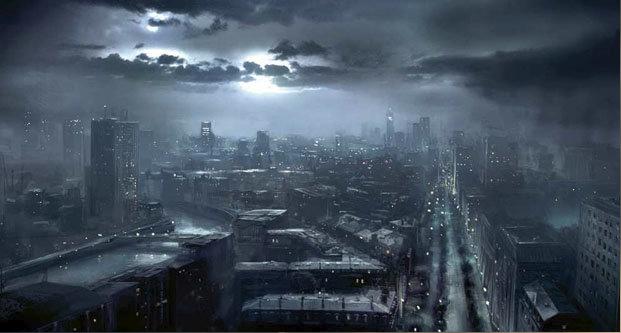Differences on Free Council
Magic exists in the Fallen World, like a tree stunted by the Abyss, growing ever upward to touch the Supernal. The Awakened have always been sensitive to the spirit of an age, and the modern age is one of power and promise. All of humanity’s knowledge can be held in a pocket, while revolutions are given wings by invisible birds. Mathematicians and theoretical scientists grasp the fundamental nature of reality, straining against the impossible. The Fallen World is a chain on human souls, but any chain can be reforged into a key… or a sword.
Upheaval and innovation lead to occult Wisdom: This is the basis of the Council of Free Assemblies, an Order comprised of modern idealists and ancient rebels united by a shared love of humanity and the belief that the traditions of the Fallen World hold a place equal to the Supernal. Geniuses, rebels, malcontents — all have places within Assemblies, fostering a flourishing idealism tempered by practical iconoclasm. Larger and more varied than all other Orders, Libertine sancta ring with competing voices of anarchists, free-market capitalists, and doctrinaire demagogues. Ancient Legacies and formerly Nameless societies that predate the Diamond share a table with cutting-edge technomancers, bound by the Libertine Creed and a vision of the future.
**Core Beliefs: Libertine Creed**
The Free Council is comprised of mages with deep ties to the Fallen World — they believe the ancients possessed extraordinary insights into magic, but prodigies exist in the world today, and new symbols are forged in the Supernal to accompany human achievement. The past is gone and the future ever-mutable, but the present is the most exciting time to be a mage. Despite thousands of different occult praxes, conceived of at any time from thousands of years ago to yesterday, one Creed binds Assemblies with three tenets.
* Humanity is Magical
* Destroy the Followers of the Lie
* Democracy Seeks the Truth
**Mysteries**
The Free Council looks for Mysteries within scientific and cultural innovation — supernatural fringe sciences, retro-history, new theories, ancient civilizations, and social movements. Radical occult theories discarded by Diamond Orders find purchase and, occasionally, success within the Council. They were born in an era when political thinkers wrestled with notions of anarchism and communism, when occultists invented the tarot (which even the Diamond grudgingly admitted was a success), and when Western and Eastern religions fused into new forms. As the Hellenistic era gave birth to the Diamond, so too did globalization give birth to the Pentacle.
As the Free Council seeks to mix magic and science, the Libertines hold dear the institution of the Lorehouse, university and occult repository combined. Every mage of the Free Council is tasked toward improving the dissemination of magical discovery throughout the Lorehouse, requiring constant research and magical activity.
**Magical Symbolism: Culture**
Human genius drives the praxis of Libertine magic, considering the complex occult and scientific traditions of the Fallen World to be reciprocal Supernal symbols. Power and value ascribed symbolic importance by Sleepers creates magical resonance. Derided as techné (“Craft,”) by the conservative elements of the Diamond Orders, the Libertines adopted the term as a badge of honor, their unity and recognition of human power enabling a powerful and versatile Order praxis.
The Libertines dedicate complex Sleeper phenomena as magical tools, constantly seeking and inventing new Instruments to probe the Supernal, valuing their cultural power over potential Atlantean symbolism. Mathematical formulae hold a place alongside (and complementary to) Platonic gematria. Stonehenge and Baghdad batteries can be occult devices as much as solar panels and microwave power emitters. Libertines exalt the process of science itself as a tool of wonder, humanity’s reach exceeding its imagination.
**Order Rote Skills**
* Crafts, Persuasion, Science

